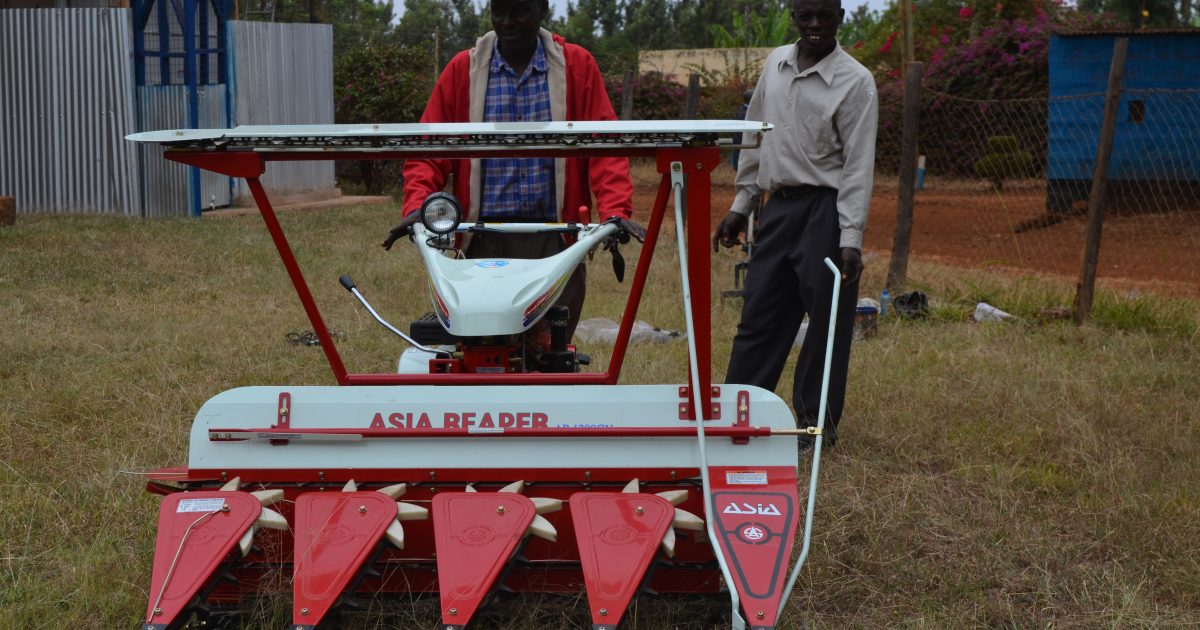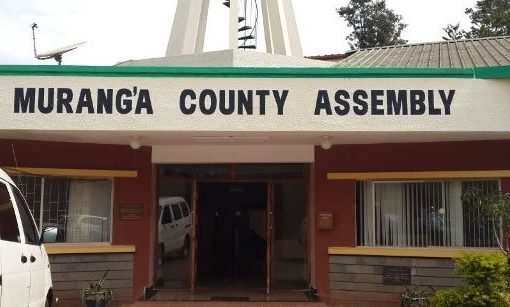Mechanization of rice farming at the Mwea Irrigation Scheme in Kirinyaga County is now a reality.
The mini combine harvesters introduced in the expansive scheme a year ago have completely revolutionized the traditional harvesting method of the crop, bringing in efficiency, time-saving and increased yields.

A farmer Peter Muchiri who owns one such combine harvester says the machine is able to harvest an acre of the grain within half an hour.
He said in a span of two hours, the machine has completed harvesting, threshing, winnowing, and packing of the crop into the bags from the four acres each farmer owns under the National Irrigation Board (NIB).
He said he decided to buy his own harvester from Japan at a cost of Sh.2.1 million which he leases to other growers at Sh5,000 per acre.
Another benefit the farmers get from the mechanized agriculture is the short time it takes to harvest an acre of paddy rice with only three people deployed to manage the machine.
“This translates to only 1.2 man-hours to harvest the four acres using the combine harvester as opposed to 80 man-hours traditional manual harvest where eight people take 10 hours to harvest an acre,” said an Area-Based Scientist Dr. Vincent Kega.
Kega said farmers have already accepted the changes and are also greatly minimizing on grain loss that occurred during the traditional harvesting, which stood at 15 per cent but currently only 3 per cent.
He however said in order for the scheme to claim full success in mechanization, rice seedling planters were urgently required.
A farmer at Thiba section where the machines are harvesting the latoon crop Joyce Wanjiru said technology has done good to the scheme.
“We used to take almost a whole month harvesting and usually left the threshed crop in our shambas at risks but today, you harvest and transport home the products within a short time, Wanjiru said.
Wanjiru like other farmers is now warming up to the day the planting machines will finally be available in the scheme to fully enjoy the mechanized rice production.
Farmers have also benefited from simple modern, efficient and cost-effective machines from a Japanese company MOL.
The machines according to the farmers are lighter as compared to others, which are stuck in clay soils while preparing the land.
A senior MOL officials speaking in Mwea during a demonstration Onitsha Oyama said his company had also produced a rice crop weeding machine which can be operated by one person.
MOLs Nairobi Head office in-charge of Logistics Srikaanth Sreenivasan who was also present said users of the machinery were guaranteed of sales and after-sales services.
The company Managing Director for the Karasawa Agricultural Machinery Services that produce the MOL equipment Mr. Takeyuki Karasawa personally carried out the mini combine harvester demonstration at the fields to the applause by the farmers present.
He also said the company’s technical division would be available to provide training to all the farmers who bought the modern machinery.
“The weeding machine for the rice fields is so simple to operate such that even young children can handle it with ease, as we move towards full mechanization of rice farming in our scheme,” a farmer said.
The scheme which started in 1956 produces about 80,000 metric tons of paddy rice and this is scheduled to be doubled once the two crops per year program are introduced at the completion of the Thiba Mega-Dam. Mechanization of the scheme will also improve on production of the grain, according to Oyama.
By Irungu Mwangi




